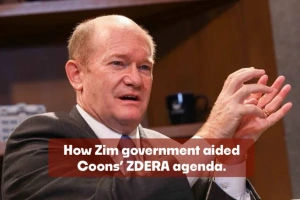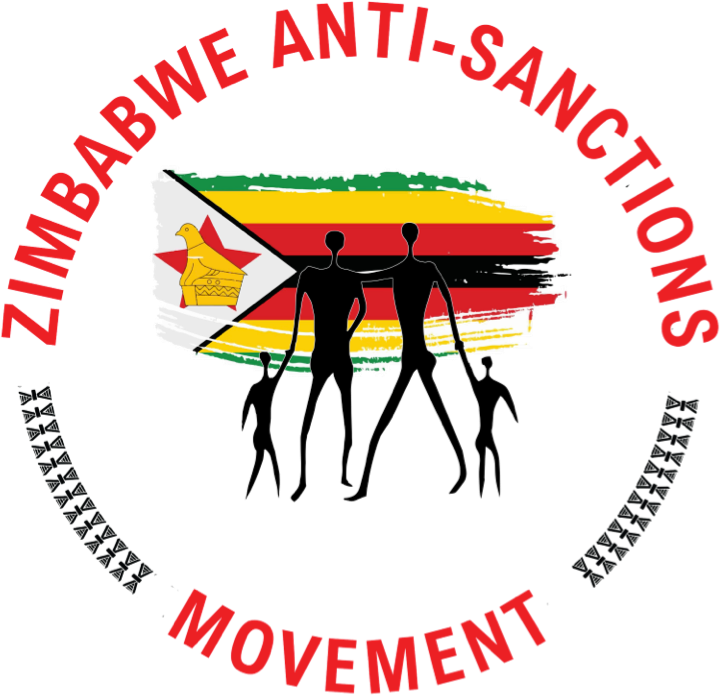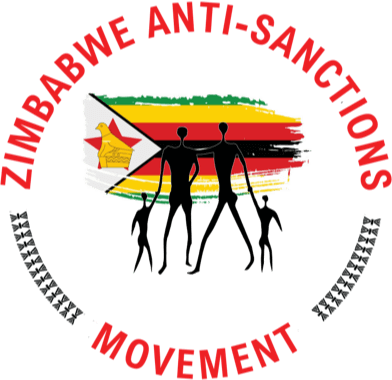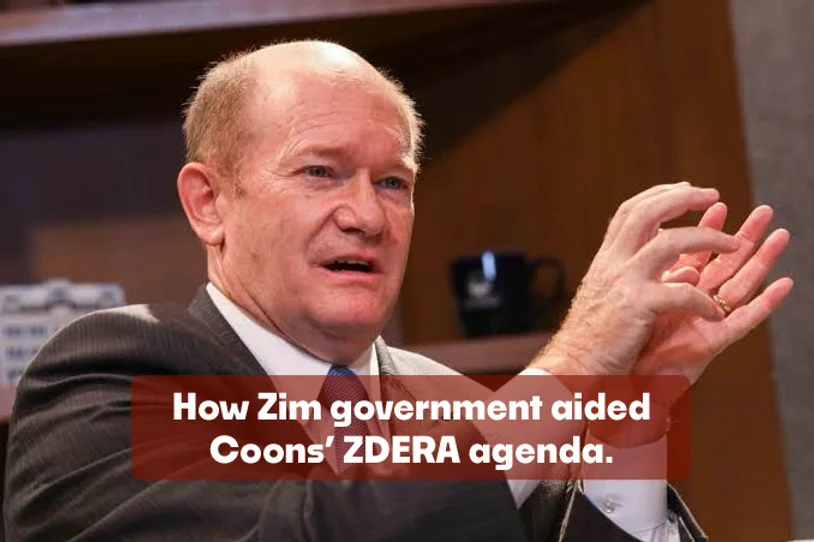 Section 4 of the Zimbabwe Democracy and Economic Recovery Act (ZDERA) falls under the heading “Support for Democratic Change and Economic Recovery” and this heading serves as a rationale, explanation, or background given by Congress to provide context for requesting that the U.S. President, in Section 6 (3), use his executive orders to sanction Zimbabweans who “violate human rights”. Then just below in Section 6 (4), it concludes by asking the President to also determine how those same sanctions would eventually be removed.
Section 4 of the Zimbabwe Democracy and Economic Recovery Act (ZDERA) falls under the heading “Support for Democratic Change and Economic Recovery” and this heading serves as a rationale, explanation, or background given by Congress to provide context for requesting that the U.S. President, in Section 6 (3), use his executive orders to sanction Zimbabweans who “violate human rights”. Then just below in Section 6 (4), it concludes by asking the President to also determine how those same sanctions would eventually be removed.
The background in Section 4, portends to how in the early nineties, the Zimbabwean government requested loans from multilateral lending institutions. In response, the financial institutions required Zimbabwe to undertake an Economic Structural Adjustment Program (ESAP) in exchange for loans.
These loans were pre-approved by the lenders, with specific uses prescribed alongside austerity measures. The terms included stipulations that loans from the World Bank, International Monetary Fund, International Bank of Reconstruction and Development, and International Development Association were to pay off previous colonial debts to Western banks, support infrastructure and transportation development, and provide balance of payment support.
The Zimbabwean government agreed to these terms. In the ZDERA Section 4 rationale, Congress then claims that Zimbabwe allegedly repurposed the funds to finance the Congo War, which breached ESAP’s austerity measures and balance of payment loan terms. When Zimbabwean leaders were reportedly questioned by lenders about these unapproved expenditures, they denied using the funds to support activities in Congo—when, allegedly, they were.
In this context, Congress insinuated that these balance of payments loans were misused by the Zimbabwean army in Congo without ESAP lender approval. Though I am deeply opposed to such prescriptive neo-colonial loan conditions, it is unfortunate that our government, then advised by a neoliberal finance minister, signed up for these terms, much like it has recently done with white farmer compensation under Mthuli.
As a consequence of this breach, in November 1999, IMF and IDA decided to suspend all lending to Zimbabwe, followed by the World Bank suspending financial support in 2000. These multilateral loan suspensions came at least a year and a half before ZDERA.
While I maintain that these suspensions were aimed at aiding the Movement for Democratic Change to take power in 2000 elections, we must acknowledge that our government played a role in undermining itself by voluntarily signing this ESAP agreement and then not adhering to the terms.
By 2000, Zimbabwe had stopped repaying its ESAP loans. Congress explains that, due to Zimbabwe’s delinquency, and as the largest contributor to these lending institutions, the U.S. instructed its representatives to deny further loans or debt cancellation to Zimbabwe after it breached ESAP.
Congress also directed the U.S. President to review whether any loans owed by Zimbabwe to the U.S. could be cancelled or restructured, but only if Zimbabwe met conditions such as equitable land reform, respect of property rights, free and fair elections, and freedom of expression for the press and opposition.
Essentially, Section 4 of ZDERA—which I have also previously perceived as a sanction—merely outlines the U.S.’s decision to withhold additional loans or debt cancellation to Zimbabwe (but this is after all multilateral lenders had already suspended loans and technical assistance to Zimbabwe for non-payment), until it fulfilled ESAP terms it signed independently.
Congress further subliminally links Zimbabwe’s alleged loan misuse to human rights abuses and land expropriation, to arrive at ultimately asking the U.S. President to impose executive sanctions on alleged human rights violators (Section 6 (3)).
President George W. Bush duly obliged by issuing executive order sanctions EO13288 two years later in 2003, EO13391 in 2005, and EO13469 in 2008. This last sanction in 2008, prohibited U.S. and non-U.S. entities from clearing payments, transferring technology and software, and providing logistics or material assistance to the Zimbabwean government, its parastatals and those who do business with them, without the approval of the U.S. Secretary of State. As such these were sanctions against state-run institutions, impacting basic services and thus constituting collective punishment of civilians.
In Section 6 (4) of the same act, Congress concluded by asking the U.S. President to provide a pathway for the eventual removal of these sanctions.
Following a 2021 report by Congresswoman Karen Bass’s subcommittee on human rights, health and organisations, on the human rights impact of U.S. sanctions on Zimbabwean civilians, President Joe Biden fulfilled ZDERA by ending executive order sanctions on Zimbabwe on March 11, 2024.
This act by Biden in March of 2024, marks the fulfillment of ZDERA, with the U.S. President rescinding executive orders on Zimbabwe.
Did the U.S. use ZDERA to advance neo-colonialism, force white farmer compensation, and influence Zimbabwe’s 2013 constitution? Without a doubt. However, we must also recognize that our government facilitated this neo-colonialism by signing ESAP in the first place, just as it is now taking on a huge loan to compensate white farmers without demanding reparations for colonialism or illegal sanctions. Or how it allows the poisoning of our people through illegal GMOs imports and glyphosate, and how it has damaged rural agriculture by replacing villagers’ reproductive seeds with non-reproductive hybrid seeds that farmers must purchase every season.
All too often, our government colludes with imperialist forces, driven by a desire to appease the West in order to secure individual privileges.
Written by Rutendo Matinyarare, Chairman of ZASM.




